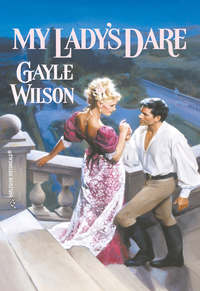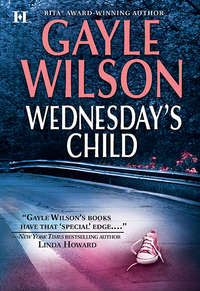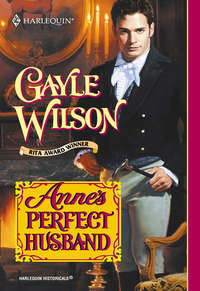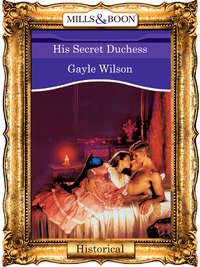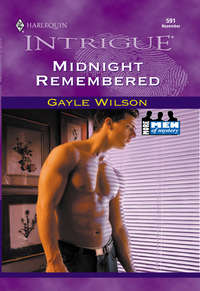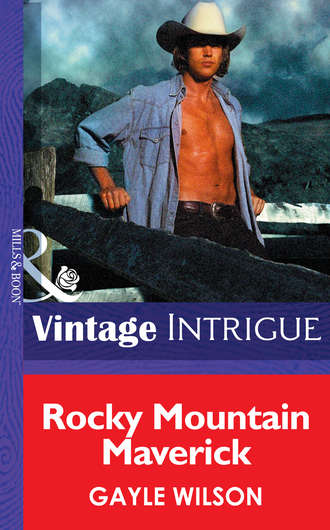
Полная версия
Rocky Mountain Maverick
Despite the fact that he had the skills required for this job, Michael had been surprised at how quickly he’d been hired. The questions Quarrels had asked during his interview had been cursory. Michael’s answers had been accepted at face value.
Now officially an employee, he was being given the grand tour of the Half Spur. Not that there was anything remotely grand about what he’d seen so far.
Employees lived in trailers that were scattered around the outer perimeter of the central compound. Judging by the interior of this one, he decided after he followed the foreman up the high step and then inside, none of them were living in luxury. Heated by propane and lighted by an outside generator, the small metal caravans would be freezing in winter and like ovens in a summer like this.
He’d been given the trailer farthest from the complex where the offices and shearing pens were located because, Quarrels had explained, Michael had his own transportation. Not the SUV, of course. He’d left that at the Royal Flush and purchased the most disreputable looking pickup he could find to make the journey north.
“Meals are down at the main cabin,” the foreman went on. “Six, noon and six.”
He assumed the main cabin referred to the building where his interview had been conducted. Michael had gotten the impression that some of the workers, including the foreman, lived on the premises. Everybody else got one of the trailers.
“I’ll introduce you to the rest of ’em during supper. We’re shorthanded right now, so there ain’t all that many names to remember.”
“Thanks,” Michael said, swinging his duffel bag onto the narrow bed.
Little more than a cot, it didn’t look as if it would be long enough to accommodate his height. Ever since he’d entered the trailer, he’d felt as if he needed to duck his head to avoid bumping the low ceiling. When this was over, Colleen was going to owe him big time.
“You can ride back down with me,” Quarrels offered. “Ain’t no need to start ’til morning. We’ll be taking blood samples then.”
“Blood samples?”
“This ain’t just a sheep ranch. It’s a government research facility.”
Each syllable in the last two words had been enunciated separately, as if Quarrels had had to practice until he got the phrase right. Michael didn’t ask what they were researching. He doubted the normal hired hand would give a damn, so that was the attitude he needed to adopt.
He’d had a lot of experience adapting to whatever role he was playing. Someone who couldn’t bury himself completely in a situation wasn’t going to survive undercover work.
To him, that had always been one of its biggest draws—the tension created by the dichotomy of disappearing into a persona while maintaining the necessary vigilance about who you really were and why you were there. It created a constant adrenaline rush. Or as near to one as he had believed he could get.
“You ready?”
Michael turned to nod, but Quarrels hadn’t waited for his answer. He was already going down the steps that led to the ground. Michael followed to find him standing at the bottom of them, watching his descent with interest.
“Horse or a bull?” Quarrels asked, obviously referring to his knee.
“Something like that,” Michael said shortly, limping around the dusty pickup to climb in on the passenger side.
“The cold up here in the winter plays hell with broke bones.” Quarrels started the truck, again seeming to expect no answer.
“How many hands on the place?” Michael asked.
“Two permanent. Bunk in the cabin.”
“Permanent?” Michael asked, wondering how the foreman made the classification.
“Been here more ’an a couple of years. Don’t many stay that long. Too isolated. No bright lights.”
No lights at all, Michael thought, remembering Quarrels’ explanation about the generator’s limited hours of operation.
As they talked, the pickup rattled over the dirt road that led back down to the main cabin, which appeared to be the center of the ranching operation. The speed at which it was driven made no concession to the potholed roughness of the track.
“Five temps, including you,” Quarrels continued after a contemplative silence. “Ain’t but a couple of them been here more ’an six months. Pays all right for what little you gotta do, but the place itself gets to people.”
Yet it would have been difficult to find a more beautiful location. The magnificent Rockies loomed in the background. Abundant water from the spring runoff guaranteed the lush richness of the pastures. So far, Michael realized, he hadn’t seen a single sheep.
Quarrels roared around the last curve with a shower of gravel, pulling the truck into the yard outside the main cabin. A man stood in its open doorway. His eyes, narrowed against the smoke wafting upward from the cigarette he held cupped in his hand, followed the two of them as they got out of the pickup and walked across the expanse of worn, patchy grass.
“Sal Johnson,” Quarrels said, indicating the man in the door with a forward motion of his head. “This here’s McAdams. What’d you say your first name was?”
“Mac’ll do,” Michael said, nodding to the cowboy with the cigarette.
Small and wiry, Johnson looked like dozens of other hands he’d known growing up. Skin burned to a wrinkled mahogany by a combination of wind and sun. Eyes perpetually squinted against its glare, even when it wasn’t in the sky. Body stripped of every ounce of fat by the work he did.
“Pleased to meet’cha.” Johnson threw the stub of his cigarette into the yard and stepped back, making room for them to come by him.
The central room of the cabin was the office, dominated by a battered old desk piled high with circulars and paperwork. Quarrels led the way through it, entering the hallway to the living quarters. There were three bedrooms off the hall, two on one side and one on the other, Quarrels pointed out as they passed the closed doorways.
The dining room at the end of the passage held one long table. The bar behind it was topped by a service window to the kitchen.
There a heavyset man, cigarette dangling from his lips, stirred something in a metal pot. He made no acknowledgment of their presence, despite the sound their boots made on the wooden floor.
“Still early,” Quarrels said, heading for the seat at the end of the table.
Rank hath its privilege, Michael thought, amused by that assumption of power. He hesitated a moment, wondering if the other places were also spoken for.
“You can sit anywhere,” the foreman advised, ending that speculation.
Michael deliberately chose a seat in the middle of the far side of the table, knowing, even as he did so, that most people would probably have sat down on the nearer side. He wanted to watch the rest of the hands assemble, however. To have a chance to observe them before they were aware they’d been joined by a newcomer.
Johnson, the one who’d been standing in the doorway when they arrived, entered the dining hall almost as soon as Michael sat down, followed closely by an older cowboy. That man extended his hand across the table before he took his seat.
“Ralph Mapes.”
“McAdams,” Michael said. “Call me Mac.”
A metal bell tolled somewhere outside, interrupting the brief conversation.
“Warning bell,” Quarrels said. “Means you got three minutes before cook serves it up.”
Michael nodded. Johnson took a saltine out of the narrow basket in the middle of the table, chewing it with serious concentration. Nobody else said anything. After a minute or so a group of four entered almost at the same time, settling rapidly into the remaining places at the table.
None of them introduced themselves as Mapes had done. And none of them paid him any overt attention. There were a couple of sidelong glances, eyes skating quickly away if they made contact with his.
The last person to enter was a lanky kid who looked as if he couldn’t be more than eighteen or nineteen. By the time he got to the table, the only available chair was next to Michael. The boy slipped into it almost furtively, as if he expected someone to object.
His arrival seemed to be the signal. The cook, cigarette still between his lips, appeared, holding the metal pan by its handle. He set it down on the edge of the table and began ladling chili con carne from it into the bowls stacked in front of Quarrels.
As each was filled, it was passed along the table. A couple of the hands had picked up their spoons, holding them while they awaited their portion. Everyone began eating as soon as he was served.
Passing each serving to the kid beside him gave Michael an opportunity to observe him. His hands, visible as they took the bowls, bore silent witness to the work he did.
The knuckles were scuffed and reddened. Grime was embedded in the creases and around the rims of ragged nails. The plaid shirt he wore looked too large, with the ends of the cuffs resting low on the back of his hands.
The boy kept his eyes downcast, focused on the contents of the dishes he accepted. He never once looked up at the stranger beside him. Although the bowls were brimming with hot chili, there was something about his studied disinterest that seemed peculiar. Especially in a kid.
Almost all that was visible of him was a droop of long, mouse-colored hair, which hung down over his eyes and ears, and the rounded curve of a cheek. As Michael watched, a slow flood of color moved under the tanned skin, revealing that the boy knew he was being observed.
Based on what he saw, Michael revised his original estimate of the kid’s age downward a couple of years. Runaway? he wondered.
This would certainly be the ideal hiding place for someone who was determined not to be found. And it was always possible it wasn’t the kid’s parents that he was hiding from. Men dodging warrants frequently joined that itinerate brotherhood who followed seasonal work across the West.
Quarrels hadn’t inquired too closely into his credentials this afternoon. Based on Michael’s previous experience with ranch hands, there were probably at least a couple seated at this table who couldn’t afford any scrutiny from law enforcement. Running fingerprints from this bunch might prove to be an interesting exercise.
Despite his conviction that Colleen had sent him out here as some kind of occupational therapy, he realized that he was beginning to take this assignment seriously. Hardly surprising, since “seriously” had always been the only way he knew how to operate.
He turned to pass the last bowl to the boy. Only when he had did he realize the kid was already bent low over his serving of chili, spooning it into his mouth with a rapidity that spoke of real hunger.
As Michael held out the bowl, the kid turned to look at it before he finally raised his eyes to Michael’s face. The deep, clear blue of a summer sky, they locked on his for maybe two seconds before they were returned to the serious business of eating.
The force of their impact, however, had been like an electric shock. Michael continued to hold out the bowl long after that contact was broken, trying to understand what had just happened.
When he placed the chili on the table in front of him, he was grateful for the excuse it gave to lower his head. As he did, he tried to reconstruct what he had seen in the kid’s eyes.
Maybe it had been the directness of that stare, or the surprise of the color against the wind-burned skin. He felt as if some unspoken connection had been made. Or at least attempted.
“McAdams here’s the new man,” Quarrels said, speaking around a mouthful. “Starts tomorrow. Beaumont, you show him what to do.”
Only Mapes looked up. The others continued to shovel chili into their mouths. Michael wondered which of them was Beaumont, and how much help he could expect with the blood samples they were going to be taking.
Across the table, Sal Johnson pushed back his chair. He picked up his empty bowl and utensils and carried them toward the kitchen. He didn’t return with seconds as Michael had anticipated. Instead, after he’d deposited his dishes, he crossed the dining hall to disappear down the hall.
The ritual was repeated, as one by one the men returned their dishes to the kitchen and left. The kid was maybe the third or fourth to depart. Eventually only Charlie Quarrels and Ralph Mapes remained.
“I do something wrong?” Michael asked.
Mapes looked up to grin at him even as he scraped the last bite of chili out of his bowl.
It was Quarrels who answered. “They ain’t big talkers.”
“Glad to know it wasn’t me.”
“You need any help tomorrow, you ask. Nate’s the best with the needle. He’ll show you what to do.”
“Nate?”
“Nate Beaumont. The one sitting beside you.”
“The kid?”
“Says he’s twenty,” Mapes said. “Believe that and I got me a bridge I wanna talk to you about.”
“Runaway?”
“I ain’t never asked him,” the foreman said. The tone was obviously intended to discourage further discussion of the subject.
Across the table Mapes raised his brows, looking directly at Michael. A warning, or an expression of sympathy?
“Breakfast at six. We start in to work at six-thirty.” Quarrels pushed back his chair, almost drowning out the last of those instructions.
Mapes got up, too, trailing him across to the kitchen and then out through the door to the hall. Neither spoke to Michael again.
Left behind in the empty dining room, he put his spoon down, giving up all pretense of eating. He had been immersed in dozens of alien cultures during his years of service, first in the military and then with the agency. This one would rival any of them for strangeness.
He had known taciturn men before, but these barely acknowledged one another’s existence. If this was the extent of their social interaction, it was no wonder the turnover was high.
He couldn’t blame anyone who chose to leave this place. He’d been here less than four hours and he was already aware that the atmosphere was decidedly strange. And that business about the ranch being a research facility was just odd enough to make him decide that even if what was going on here had nothing to do with the Langworthy kidnapping, it was something he intended to understand before he left.
Young Nate Beaumont seemed the ideal place to start.
Chapter Four
It was not yet noon, and Michael already knew a lot about the kid he’d been assigned to partner with. Due to his years on the Royal Flush, he had worked with a lot of ranch hands. There were those who grew to hate the creatures they tended, their small cruelties deliberate. More common were the ones who no longer saw the animals as anything other than commodities, the reason they had a job. Something to protect because that’s what they were paid to do.
Working in the morning’s dusty confusion of sheep and dogs, it would have been easy to pick up on those attitudes. Nate Beaumont manifested neither. He was quick and efficient in taking the blood samples, but he was also careful not to unduly frighten or hurt any of the ewes or lambs they handled.
What they were doing was hot, backbreaking work. Michael had discarded his denim jacket by ten o’clock. The kid was still wearing his long-sleeved shirt, a near twin to the one he’d worn yesterday. Beneath it was a waffle-weave thermal underwear top, its three-button neckline visible at the open throat of the plaid. And despite the growing intensity of the sun, he showed no inclination to shed his outer garment as most of the other men had already done.
“What do they do with them?” Michael asked.
The kid didn’t raise his head, slipping the needle into the vein in the ewe’s neck, which he’d expertly located beneath the close-crimped fleece.
“The blood samples, I mean,” Michael prodded.
“Don’t know.”
“You never asked?”
The answer was a negative motion that set the bowl-cut brown hair swinging. Nate withdrew the needle, and Michael reached for the yellow plastic tag on the sheep’s ear.
He was holding her around the head, as the shearers did. She didn’t seem to even realize she’d been stuck.
“Because you don’t give a damn?”
“Because it’s none of my business.”
There had been no direct eye contact between them as there had at dinner last night. It hadn’t been necessary. The routine they’d worked out, virtually without discussion, ran like clockwork.
Michael dragged the sheep to the table, where Beaumont drew the blood. When that was done, Michael read aloud the number from the animal’s tag, and the kid wrote it on an adhesive label, which he then pressed around the vial. He had rarely looked up in the long hours they’d worked together.
“And you aren’t even curious?” Michael prodded.
“No.”
It had been like this all morning. Nate spoke only when asked a direct question and then in the fewest possible words, his voice so low Michael strained to catch the words above the constant noise of the pens.
“You’re supposed to be teaching him how to do that,” Charlie Quarrels yelled from outside the fence. “You two change places.”
Michael glanced up to find the foreman leaning on the top rail, watching them. Nate didn’t look at Quarrels, but he laid the syringe, which he’d already made ready, back on the table. Without a word, he walked around to where Michael was holding one of the spring lambs.
A small, straw-colored female, she was anxiously watching as her mother was being forced through the exit shoot by Sal Johnson. The lamb voiced her displeasure at that maternal desertion loud and clear.
The adult sheep seemed accustomed to the procedure, but the lambs were a different story. That was part of the reason Michael dreaded having to use this one as a guinea pig for his untested methodology. Conscious that Quarrels was still watching, Michael gave the lamb over to Nate’s more than competent hands and walked around to the front of the table.
He picked up the needle, and as the boy held the lamb in position, he bent over it, searching for the vein in its neck, as he’d watched Nate do a hundred times. The problem was it was less visible on the lambs than on the adults.
He did the best he could, sliding the needle in under the skin. Thankfully, the syringe began to fill with blood. The lamb bleated soulfully, but that seemed more a result of loneliness than pain.
When the vial was full, Michael slid the needle out and straightened. He had begun to turn toward the table to complete the procedure by labeling the vial. Nate’s head was still bent, his left hand holding the small, curly lamb while his right found the tag.
A glitter of silver-gilt where the boy’s lank hair fell forward at the crown caught Michael’s eye. Obviously new growth, it was less than an eighth of an inch long. That line of demarcation between the pale, champagne-blond at the scalp and the muddy brown color of the rest of his hair could only be seen from this angle.
Nate called out the number and then released the lamb, sending her scampering after her mother. Michael pretended to be occupied with the labeling as he considered the implications of what he’d just seen.
It wouldn’t be all that unusual for a boy this age to dye his hair. The more likely scenario, however, would be to go in the other direction. To change the color from a dull brown to that shimmering blond.
The more he thought about it, the more he realized that the opposite transformation made no sense, unless what he’d suspected last night was true. The kid was on the run.
And for some reason, the mystery of who Nate Beaumont might be hiding from and, more importantly, why was far more intriguing than what would become of the hundreds of vials they had filled this morning with sheep’s blood.
“EVERY ANIMAL in the herd is sampled,” Michael said into his satellite phone. “They bring a part of the flock down from the high pasture on a rotating basis, draw blood and then return them.”
“And no one knows what’s done with the samples that are collected?” Colleen asked.
“If they do, they aren’t saying,” Michael said. “Given the lack of communication among the hands, that’s not surprising. I’ve never seen a stranger conglomeration. Could you run some prints if I sent them to you?”
“We have access to the national database. You have some reason—”
“Just covering the bases.” It was probably a long shot, especially where the kid was concerned, but worth a try. “Before we get into fingerprints, how about running a name for me. See what you come up with.”
He heard a rustle of paper on her end, thankful for the clarity of the sophisticated satellite phone’s transmission. It was the same one he’d used during his last year with the agency. He had taped the phone inside the heater when he’d left to go down to the cabin for breakfast this morning. As far as he could tell, it hadn’t been discovered. Actually, he had found no evidence that anyone had been inside the trailer during his absence, something he hadn’t taken for granted.
It would be a pain remembering to take the phone out of its hiding place and charge it during the few hours the generator ran in the evenings, but it was a necessity. This was the only way he had of communicating with the outside world. And the longer he was here, the more detached he felt from it.
“Okay, shoot,” Colleen said.
“Nate Beaumont,” he said, spelling the last name. “Since that’s probably not his real name, consider anything close. Same initials, for example. I doubt you’ll find anything criminal. I’d be more interested in missing persons. Lost or abducted kids. Runaways. Maybe sixteen or seventeen. Blue-eyed blonde. Five-ten or -eleven.”
“You think he’s involved in something on the ranch?”
“I think he’s hiding out here. I’m curious to know why.”
“Okay,” she said again, but he could hear skepticism in her voice.
He didn’t blame her. Even he couldn’t put his finger on what bothered him about the kid. It was like having someone’s name on the tip of your tongue and still not being able to figure out who they were.
“Everything all right there?” she asked, the note of sisterly anxiety clear, even across the distance.
“Meaning am I all right?”
There was a beat of silence. “Are you?”
“I smell like sheep. A lot of sheep. Other than that I can’t complain. You did intend for this to be boring, didn’t you?”
Another pause.
“Is it?” At least her voice had lightened, losing that tinge of concern he hated.
“I’ll let you know after I’ve been here a few more days. By the way, don’t call me even if you find something on the kid. Let me make the contact. It’s probably safer.”
Without giving her time to respond, he punched the off button with his thumb then laid the phone on the floor beside the bunk. He swung his bare legs up onto the mattress, grimacing as the left one protested. He leaned back against the limp pillow, his hands behind his head, fingers interlocked as he waited for the pain pills he’d taken after his shower to kick in.
There was nothing unusual about a ranch participating in research. Sometimes the money from a study was all that kept a small operation afloat.
Most ranches operated on a pretty narrow profit margin. Judging by the shoddy accommodations and the quality of the four meals he’d been served so far, this was one of them.
He couldn’t see how a run-down sheep operation could have any connection with the Langworthy kidnapping, despite Senator Gettys having a share in the place and the strange atmosphere. And frankly, he was too exhausted to do any serious thinking about the question tonight. At least tomorrow wouldn’t be as hard physically.
He and Beaumont had been instructed to move the sheep they’d taken samples from today back up to higher pastures. It had been a while since he’d straddled a horse, but it wasn’t the kind of thing you forgot. Thankfully it would involve the use of a different set of muscles from those that ached so badly now despite the long, semi-hot shower he’d just taken.




